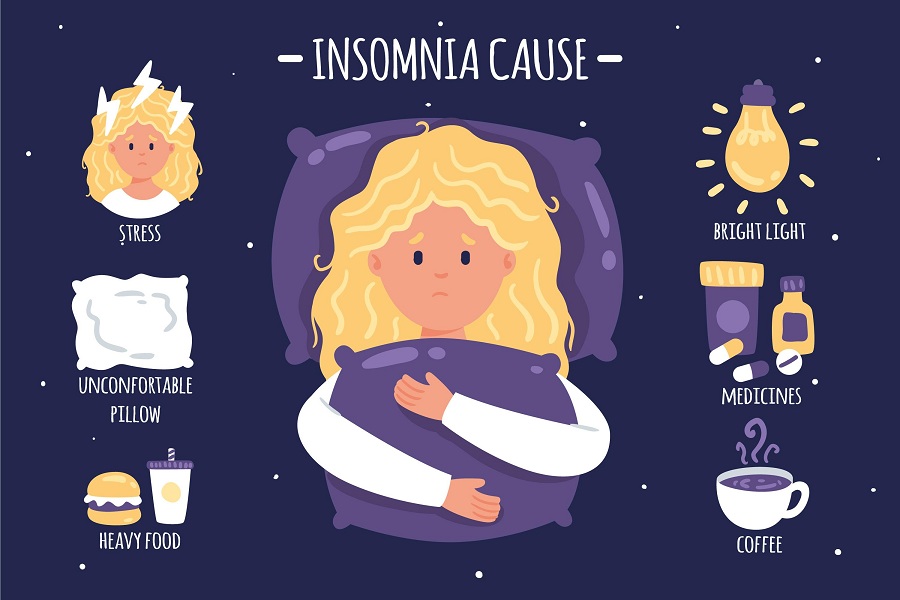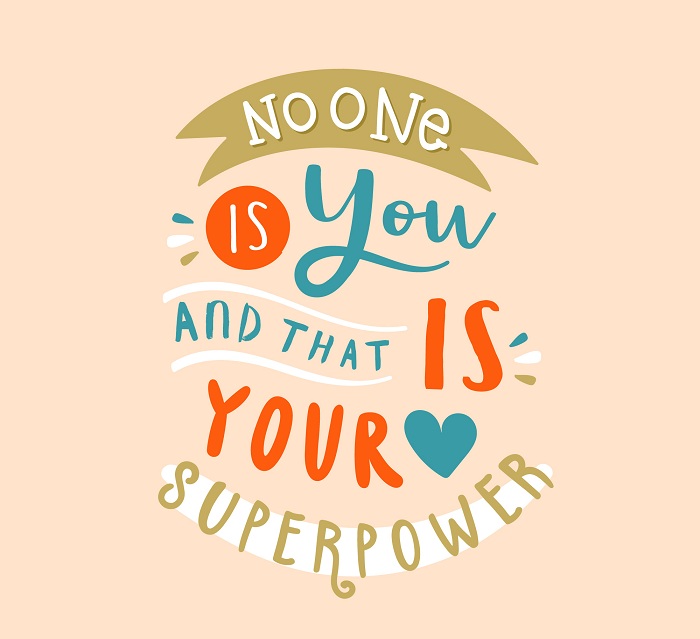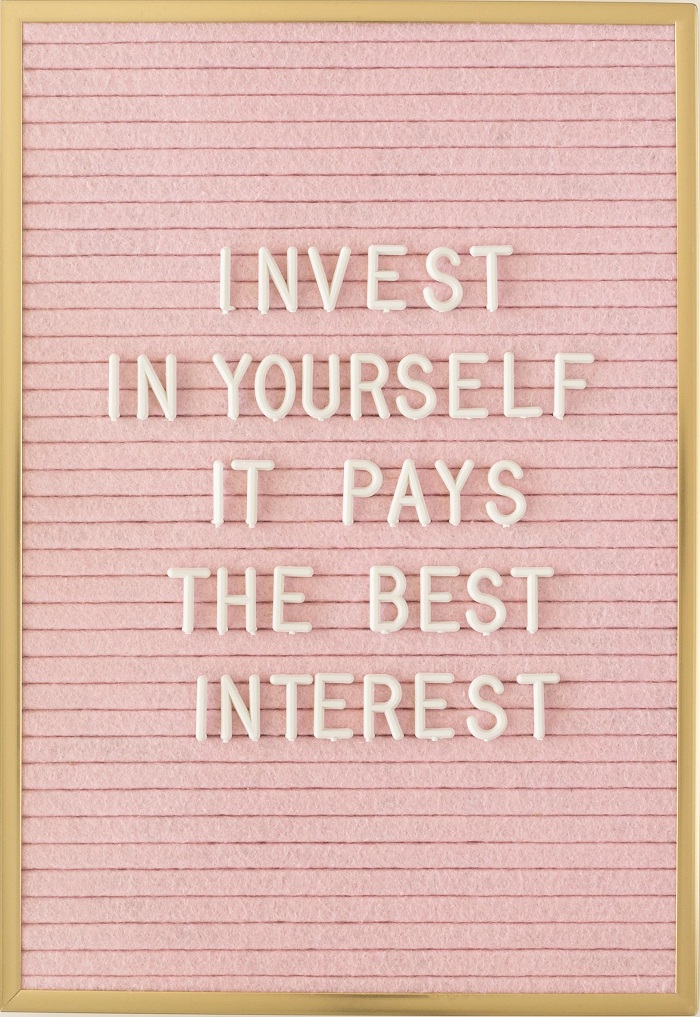Anxiety is the propensity to be restless and worried for some reason which is very common now. All it happens when your future mixed with fears. It stops our ability to think logically and be optimistic about the future.
Anxiety leads to the kind of thoughts that makes us question our ability to deal with the situation further leading us to a state of helplessness.
Loved one walk away from you, and you feel unable to speak up in certain stressful situations. It leads to some serious physical and mental issues such as depression and anxiety.
Treat An Anxiety-Prone Mind
A thought – as most of us perceive is formless. No one can see it. We can think whatever we want. It’s all in our minds.
It’s our secret space to reveal any emotion, hidden from rest of the world.
A thought has a profound strength and power to manifest through our actions, decision, attitude, and overall functioning of our mind and body.
That is when we understand the necessity to treat our anxiety-prone mind.

1. Daily Exercise
One way to keep our mind quiet is by keeping our body active apart from the daily chores at home or walking to the supermarket. It is important to schedule a fixed time for exercises.
Aerobic activities such as going for a walk, jog, or cycling helps to release brain chemicals that help to reduce anxiety.
Research shows that at least 30 minutes of exercise three to five days a week can significant improvement in anxiety and depression better than traditional drugs.
2. Read A Good Book
According to psychologists, reading a good book helps to overcome anxiety. It helps to put things into context. Intellectually upgraded books elevate our thought process.
Particularly, books on self-help are beneficial in breaking the cycle of anxiety. Self-help books help to get to the root of the matter, understand the role of the brain, and how thoughts can influence our mental and emotional equilibrium.
An anxiety self-help book helps have citations that mirror the emotion and experience that you have carried for years but could not identify as the symptoms of anxiety. It helps you to get over shame and move ahead.
5 Great Books to Read If You Have Anxiety
- My age of anxiety by Scott stossel
- Calming Your Anxious Mind by Jeffrey Brantley
- Unf*ck Yourself by Gary John Bishop
- Feeling Good: The New Mood Therapy By David D. Burns
- Declutter Your Mind By S.J.Scott
3. Focus Only On Present
Worry, stress, or every negativity that leads to anxiety is concerned with either our past or our future. It happens when we stop being in the present.
Most of us are not even aware that we carry most of our daily activities without completely experiencing the moment. For us to get rid of anxiety disorder, we need to identify and accept this first.
This can be done by practicing mindfulness and deep breathing exercises. Mindfulness enhances our cognitive, sensory, and emotional perception by taking us to a point of non-judgemental neutralness.
4. Take Care of Your Sleeping Routine
Sleep plays a major role in our overall health and wellbeing. Needless to say, getting deep sleep can help with depression, anxiety disorder, and other mental ailments.
Lack of sleep and anxiety often go hand in hand. Hence, it is essential to develop a proper sleep routine.
Here are some ways that help you develop a proper sleep routine:
- Fix up bedtime and wake up time. Stick to it.
- Cut down on stimulants like coffee.
- Spend at least 30 minutes under the sun.
- Take bath before you hit the sack.
- Switch off all your gadgets at least two hours prior to your bedtime.

5. Practice Breathing Exercise
Shallow breathing is one of the symptoms of anxiety disorder. Having said that, anxiety disorder can also be treated through breathing only.
Practicing deep breathing enhance oxygen supply to every part of the body. It improves blood circulation, and eliminate toxins from our body.
Deep breathing exercises such as diaphragmatic or abdominal breathing, opposite nostril breathing (also known as anulom vilom pranayama) helps to calm the mind.
6. Drink Cold Water
Just like slow and deep breathing, cold water also has a tranquilizing effect on our nerves and body. It helps to calm our minds.
Drink cold water slowly to experience the coolness radiating down your throat and body. Having a cold water sponge at the pressure points such as palms and back of the neck also helps to release a lot of stress.
Try these best cool and refreshing detox drinks to calm down.

7. Find A Creative Activity
A lot of people have found respite from depression, stress, and anxiety by engaging in some sort of creative activity.
Creativity seems to be very intrinsic to human hence helpful in healing our mind. Some of the creative ways to relieve stress include baking, gardening, pottery, pursuing a sport, develop a hobby like learning instrumental music, making videos, photography, etc.
Study revealed that spending time doing creative activity can helps you to promote psychological well-being.
Hands-on experience of baking bread from scratch right from testing the yeast for its activeness to kneading, proofing, and folding the dough into the baking tin to slicing it to reveal the wonderful crumbs – only people who have experienced it can understand the joy.
The same goes for each and every creative activity. It is relaxing and rejuvenating, to say the least.

8. It’s OK To Ask For Help
People who experience anxiety disorder often find themselves in a void. They can’t figure out where to start or how to feel better.
Often times, they can’t express themselves even to their closest friend. But it is important to understand that one can’t fight this battle alone. And there are a lot of people who are ready to help to deal with anxiety.
Also there is rising awareness about mental health which is eradicating the taboo attached to it.
It can be even more difficult to reach out to friends or family for support, thanks to the stigma that often surrounds mental health.
Connect with a licensed clinical psychologist or talk to a friend. A heart to heart conversation helps to reduce anxiety.
9. Be Positive
Scientists have revealed that it not a bad thing to have some degree of stress or anxiety in life. After all we need some impetus and motivation to push our limits.
Good stress and nervousness do that for us. Anxiety may be a wake-up call for us to learn to live in the moment.
An affirmation is a short, simple statement. But it has a profound impact on our psyche by boosting positive thinking. Simple exercises such as journal writing, chanting a mantra, or affirmations help to overcome anxiety.
10. Time Management
If you are a victim of anxiety disorder, chances are that you will find it difficult to manage your time. Yet, if you don’t focus on time management, and let your scheduling and productivity go haywire, it will only worsen the situation.
It is important to reassess your to-do lists and prioritize. You could consider delegating or outsourcing tasks that are causing stress and delegate or outsource them to someone else.
Break down projects into smaller and more manageable segments and execute it as per the priority.
11. Meditation and Prayer
Meditation helps us to pay attention to the present and train our minds to be non-judgemental. It calms our mind and brings balance, calm, and focus.
It’s a healing balm for people who live with chronic daily anxiety.
When panic sets in and things seem to be out of control, we take resort to prayers. Prayers give us strength and guide us in how to deal with anxiety. It renders inner peace and helps to get back our faith and confidence.

12. Regular Health Check
It is important to get an annual health check-up done to reduce anxiety. Treating physical ailment by regular health check-up can help in dealing with anxiety, thereby help to overcome anxiety.
Our will power, as well as our anxiety – both, have a common origin – our mind.
Both take shape with the help of the thoughts we create.
Hence, it is in our hands whether we want to strengthen our will power or we want to give way to anxiety to take control of our lives.
Featured Image: Freepik

